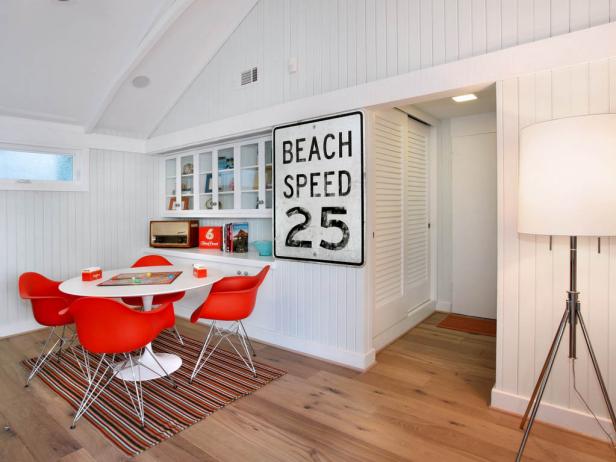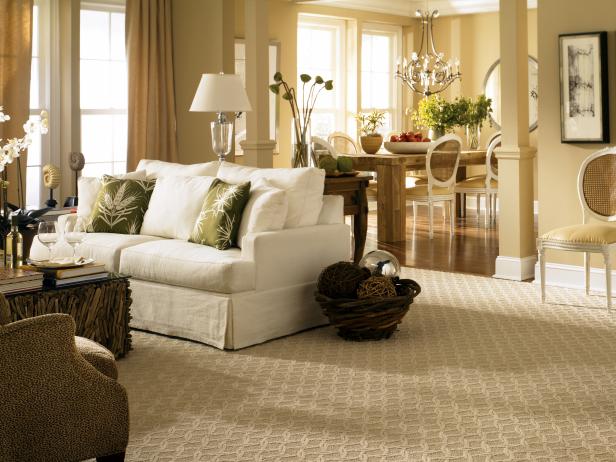Lonsdale Flooring
John Allison
1357 Main Street
North Vancouver, British Columbia V7J 1C5
604-987-6612 | phone
 Click here to email us Click here to email us
Hours of Operation
| Monday: | 9:00 am - 5:30 pm | | Tuesday: | 9:00 am - 5:30 pm | | Wednesday: | 9:00 am - 5:30 pm | | Thursday: | 9:00 am - 5:30 pm | | Friday: | 9:00 am - 5:30 pm | | Saturday: | 10:00 am - 5:00 pm | | Sunday: | Closed |
|
|
|
Flooring Buyer's Guide
Today’s choices in flooring are more varied than ever, running the gamut of styles, finishes and installation options. Product innovation is clearly blurring the lines between many flooring categories, and the raw materials used to create flooring types include gin bottles, corn sugar and the staves from old wine barrels. The winner in this underfoot mash-up is the consumer, who benefits from an astonishing array of choices that fit any lifestyle and budget.

Hardwood flooring is renowned for its natural beauty and durability. Its classic good looks harmonize with any architectural theme or interior design, and it’s an especially good choice to create visual room-to-room continuity for homes with open floor plans.
Hardwood flooring comes as strips 1-1/2 to 2-1/2 inches wide or planks 4 to 8 inches wide. Domestic species include oak, maple and black walnut. Regional varieties, such as pecan, chinquapin and mesquite, are not widely distributed but offer distinctive grain patterns.
The availability of exotic species of hardwoods varies with market conditions, and popular imported varieties include Brazilian cherry, purpleheart, and African pedauk. To make sure the wood flooring you buy is harvested from sustainable, managed forests, look for certification from the FSC (Forest Stewardship Council) and the SFI (Sustainable Forest Initiative).
Coatings for prefinished hardwood have benefited from technological advancements, and finishes may include additives such as ceramics, aluminum oxide, and acrylic monomers that produce incredibly tough surfaces.
Solid wood must be nailed to a subfloor. An advantage of solid wood is that it can be refinished many times over its lifespan.
Hardwood costs $3 to $8 per square foot, and exotic varieties may be as high as $14 per square foot. Expect to pay $5 to $12 per square foot for professional installation.

Laminate
Low-maintenance laminate flooring offers an enormous variety of styles, colors and patterns. It's similar to engineered wood in that a top wear layer is backed by layers of plywood or compressed fiber backing that is extremely stable. The big difference is that the top layer is not real wood but a plastic coating applied over a photograph. The photo-realism technology that’s used produces look-alike finishes indistinguishable from real wood and other materials such as stone, ceramic tile, even stained concrete.
Laminates comes as planks or tiles. Most are floating floor systems, meaning they can be installed directly over old existing flooring without glue or nails — no tear-out is necessary. Laminate is a popular DIY flooring, but it’s wise not to overestimate your skills — installing around corners and between door jambs takes patience and ingenuity.
Quality varies, and laminate flooring costs $1 to $7 per square foot. Installation adds $2 to $5 per square foot, depending on difficulty.

Linoleum is made with renewable, biodegradable materials including linseed oil and cork. Mineral pigments are added to produce rich, vibrant colors. Linoleum produces no harmful vapors and is considered a top environmentally friendly flooring choice.
Linoleum comes as sheet goods designed for glue-down installation and as laminated planks and tiles that install as a floating floor system. Some manufacturers provide a protective coating that prevents staining and helps the product stand up to foot traffic. Linoleum without this coating should be refinished every two years.
Expect to pay $2 to $5 per square foot and $7 to $12 per square foot installed.

Cork comes from the bark of a tree. The bark is harvested every eight to 10 years and is a sustainable material, meaning the tree is not destroyed but is allowed to regenerate new bark that can be harvested repeatedly. Typically, cork-producing countries regulate production to ensure future harvests, so the impact on the environment is low.
Cork has a warm, natural appearance and is comfortable underfoot. It has unusual grain patterns featuring whirls and speckles. It comes in tiles or planks with a laminate construction — a top wear layer glued to a stable core material. Cork flooring is either glued down or installed as a floating floor. Cork flooring costs $2 to $6 per square foot; add $3 to $5 per square foot for installation.
Most cork flooring products are prefinished; however, they should be resealed every few years to renew the wear layer, guard against stains and seal out moisture. Polyurethane and wax are both good sealers for cork. Buy water-based polyurethane that’s nontoxic or has low volatile organic compound content.
The many shapes, sizes, colors and textures of ceramic tile make it easy to create custom, one-of-a-kind patterns. Cost varies widely, and you’ll find tile priced anywhere from $1 to $100 per square foot. Complementary decorative trim pieces and mosaic inlays quickly raise the total price of a tile installation. Expect to pay experienced tile-setters $4 to $12 per square foot.
Ceramic tile is made from a mixture of clay and shale that is baked and hardened in a kiln. Dry pigments added to the mixture gives the tiles earthy tones that range from ocher to deep red. Be sure to purchase only tile that is rated for use on floors.
Ceramic flooring tile comes as one of four basic types:
- Glazed ceramic has a glasslike coating that is applied prior to firing. The coating gives the tile an unlimited variety of colors and textures and makes the material virtually maintenance-free.
- Quarry tile is unglazed ceramic tile. Colors come from pigments added to the clay mixture. Quarry tile has a slightly rough texture that provides better slip-resistance than glazed tile.
- Porcelain tile is fired at extremely high temperatures. The result is a tile that’s especially hard and durable. Porcelain tile is resistant to staining and is a good choice for exterior applications. It's available either glazed or unglazed.
- Terracotta is an unglazed tile with earthy colors and rustic appearance. It is not as durable as other tiles and must be sealed periodically to prevent staining.
Some ceramic floor tiles come with an anti-slip finish that provides excellent traction even when wet. Choose tiles that meet the slip-resistance standards of the Americans With Disabilities Act.

Carpeting is one of the most versatile of all flooring options, featuring more colors and textures than any other type of flooring. When judging carpet quality, a simple rule of thumb is to ask about the density of the fibers used to make the carpet — the more fibers per square inch, the more durable the carpet.
Most carpeting is made by pulling the fibers through a woven backing; then additional layers of backing are glued on to provide strength and thickness. A carpet pad adds cushioning and helps prolong the life of the carpet. Indoor/outdoor carpeting withstands weather and usually is installed without a pad.
Some carpets use a rating system that indicates the product’s ability to withstand wear and tear. Found on the carpet label, the system is graduated from 1 to 5, with 5 being the best. A rating of 3 to 4 is considered normal.
Carpeting costs $2 to $12 per square foot. Add 50 cents to $2 per square foot for padding and installation, depending on the complexity of the job.
Wool carpeting is the standard of quality. It's naturally durable and resistant to moisture and stains, and it’s considered to have the best feel against hands and bare feet. With the exception of wool, most carpets are made of synthetic fibers. Various types include the following:
- Nylon is exceptionally strong and resistant to wear. Make sure the carpet you buy is treated to reduce static electricity.
- Acrylic has physical properties that approximate wool. It resists wear, crushing and mildew, and it’s inhospitable for insects.
- Polyester produces bright colors and is highly resistant to moisture, but stains can be difficult to remove.
- Polypropylene olefin is used for indoor/outdoor carpeting. It's extremely resistant to stains, moisture and mildew.
If you’re looking for a little touch of luxury, stone floor tile provides quality, at a premium price. You’ll pay from $2 to $100 per square foot for natural stone tiles made of granite, marble, limestone, slate and travertine. Installation adds $5 to $10 per square foot.
The ability of stone to resist moisture and staining depends on its hardness. Softer stones such as sandstone and limestone must be finished every few years with a stone sealer. Harder stones, such as granite and marble, should be sealed every four to five years.
Honed and polished stone tile can be slippery when wet, so choose stone that has a textured, skid-resistant surface for kitchens and master bath applications.

Vinyl tiles and sheet goods are called resilient flooring — they're flexible and slightly soft underfoot. They're tough, durable and virtually maintenance-free. Vinyl comes in an array of colors and patterns at relatively modest cost. Although you’ll pay as little as $1 per square foot, there are fewer style options among the less-expensive types.
Vinyl products are backed with a layer of felt. Cushioned vinyl is backed with a thin layer of foam that offers an extra measure of comfort and safety. In general, a thicker vinyl surface means better quality and higher price. Thicker vinyl can have a textured surface that looks like real stone and wood.
Vinyl flooring has a wear layer on its upper surface that helps resist stains and scratches. The best vinyl products provide warranties on the wear layer of as much as 15 years, and you can expect good-quality vinyl to last 20 years.
Vinyl tiles and sheet goods cost $1 to $5 per square foot. Installation adds $1 to $2 per square foot, depending on the complexity of the project.
 |
One moment please...
Taking too long? |
|
|
|
|
|
|
|
|
|